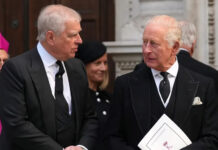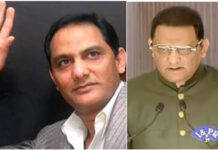The Muslim holy month of Ramadan began at sundown on Wednesday, as the faithful prepared for a month of dawn-to-dusk fasting intended to bring them closer to God and to remind them of the suffering of those less fortunate.
Muslims will abstain from eating or drinking anything for the ensuing 30 days, from dawn to dusk, not even the tiniest sip of water. Many people who want to get closer to God would observe prayer rituals diligently, read the Quran, and give to charitable causes. Every night, happy feasts will be shared by family and friends.
Many people will find it difficult to purchase holiday delights this year as costs are on the rise, in part due to the conflict in Ukraine. The economic crises that are afflicting Iran, Egypt, and Lebanon have devalued their local currencies, raising prices.
Although there have been some positive signals of potential peace, the suffering in Turkey and Syria, where an earthquake last month claimed more than 52,000 lives, as well as in conflict zones throughout the Muslim world, will also cast a shadow over the holy month.
Ramadan used to be the most beautiful month of the year for her family, according to 19-year-old Rama Jamal, who recalled how they would decorate the house and spend time reading the Quran together.
She is currently living alone in Syria’s war-torn northern province of Idlib. Her parents and brother perished in the earthquake after more than ten years of conflict.
Jamal added, “Now that I’m alone, there’s no Ramadan atmosphere, no joy. “Every hour, all the time, I miss my family.”
In addition to battling with increasing prices, inhabitants of the impoverished Gaza Strip, which has been under an Israeli blockade since the Islamist group Hamas took power there in 2007, dread another conflict amid months of intense Israeli-Palestinian fighting.
Mohammed Forra, a grocery store owner in Gaza City, said: “The prices of many staples have increased crazily.” He claimed that since last year, the cost of spices has increased.
A quarter of the world’s population, or more than 1.8 billion Muslims, are anticipated to observe Ramadan. Islam uses a lunar calendar, therefore each year the first of the month falls a week and a half earlier. This allows for a full cycle of the seasons, including the long summer days.
The beginning of the month is determined by the observation of the crescent moon by local astronomers and religious authorities, and might occasionally vary from one nation to another. However, this year, everyone agreed that it started on Wednesday evening and that Thursday would be the first day of fasting.
Muslims from all over the world flocked to Indonesia, which has the largest Muslim population in the world, to attend evening prayers after numerous Islamic astronomy observer teams reported seeing the crescent moon in various parts of the country. The start of Ramadan has also been declared by Muslim authorities in Saudi Arabia and numerous other Middle Eastern nations.
Muslims hold that more than 1,400 years ago, during Ramadan, God began to reveal the Quran to the Prophet Muhammad.
All Muslims must observe the fast, which is one of Islam’s five pillars. However, there are some exceptions for young children, the sick, and women who are pregnant, nursing, or menstruating. Travelers, including athletes competing in international tournaments, are likewise exempt.
From dawn till dusk, those observing the fast are not allowed to eat, drink, smoke, or engage in sexual activity. Additionally, during the holy month, they are urged to abstain from cursing, arguing, gossiping, and aggressive driving.
Many Muslims are accepting and welcoming of others around them who are not fasting throughout Ramadan, especially those who reside in the U.S. and Europe. Additionally, they do not anticipate working fewer hours, as is typical in the public sector in the majority of the Arab world during Ramadan.
In nations with a majority of Muslims, it is often frowned upon to eat or drink in public during the day. It is punishable by fines or imprisonment in some countries, such as Saudi Arabia and the United Arab Emirates, which have sizable expatriate populations in Dubai and Abu Dhabi.
By late afternoon, the typical city commotion has subsided, and the streets are empty and the shops have already closed. Muslims typically break their fast with a sip of water and a few dates around sunset, just as the Prophet Muhammad is reputed to have done. Some people can be seen gleefully enjoying a much-anticipated cigarette.
Family and friends assemble for “iftars,” feasts with regional seasonal delights like candy and nuts, after sunset prayers. During Ramadan, organizations and mosques host outdoor dinners where the underprivileged can eat for free. The next early morning meal for Muslims is “suhoor,” a short meal eaten soon before sunrise.
Luxurious iftars are hosted by five-star hotels, especially in the wealthy Arab Gulf nations, while cable networks debut high-profile soap operas that bring in millions of dollars in advertising. Both customs have come under fire from conservatives who believe Ramadan is becoming overly commercialized.
The final ten nights of Ramadan, known as Laylat al-Qadr, or the Night of Destiny, are when Muslims devote themselves to intensive late-night worship. Muslims hold that this was the night when the prophet received the first verses of the Quran from God through the Angel Gabriel.
Muslims observe Eid al-Fitr, a joyous three-day celebration that follows the last day of fasting, during which time kids are frequently given new clothes and gifts.










(Photos :TRT World)



